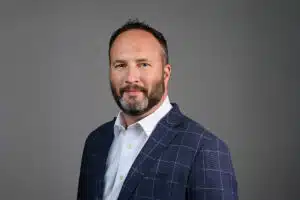
Business Planning: Key Employee(s) Dependence
80% of a company’s results are often created by 20% of their team, but what happens when those key employees leave?

Celebrities have enough money to hire the best estate planning lawyers. You would think celebrities, of all people, should have ironclad estate plans that keep their affairs private, leave money and possessions to the people they love and the charities they care about, and take advantage of legal ways to avoid or minimize estate taxes.
Unfortunately, it does not always turn out that way. Celebrities can be negligent about estate planning no matter how much money they have. Other than not having a will, the biggest mistake is relying on a simple will to transfer a sizable estate.
By failing to take advantage of trusts, celebrities hurt their loved ones in three ways:
Prince shocked the music world when he suddenly died of an overdose on April 21, 2016. He did not have a will. One year later, Time reported that the estate’s first tax payment was due in the amount of $100 million, approximately half the estate’s total value. The remaining estate was split among his six siblings according to his state’s laws of succession. This may or may not have been what Prince would have wanted.
Whitney Houston’s will was drawn up in 1993, one month before the birth of her daughter, Bobbi Kristina. It called for her to receive 10% of Houston’s estate at age 21 and the rest later. But the will was never revised, even as the singer’s fortune grew. When Houston died in 2012, her estate was worth $20 million. Bobbie Kristina got her $2 million at age 21 but lacked the maturity to handle it. She died in 2015 as a result of drowning and drug intoxication. Had Houston placed the money in a trust, with her mother or another trusted person serving as trustee, Bobbi Kristina’s inheritance could have been doled out in a more suitable manner.
In 2004, Philip Seymour Hoffman set up a trust for his son but never updated his estate plan after his two daughters were born. He had always said he did not want his children to be “trust fund babies.” When he died in 2014 of a drug overdose at the age of 46, his will directed the bulk of his $35 million estate to his longtime girlfriend and mother of his three children, Mimi O’Donnell. Because Hoffman and O’Donnell were not married, the unlimited marital deduction could not be used, and the estate was hit with an immediate $12 million estate tax. Properly drafted trusts could have been used to distribute assets to O’Donnell and their three children in a way that would save estate taxes and set conditions as to when, how and under what circumstances the children would receive their inheritance. At the very least, a trust could have allowed for the money to be used for the children’s education or medical care if needed, without turning them into “trust fund babies.”
The iconic lead singer for the Doors died of a heroin overdose at age 27 in 1971. His will left everything to his girlfriend, Pamela Courson, with the stipulation that if she died within the first three months, the estate would be split equally between Morrison’s brother and sister. Courson lived another three years but never saw much of the estate because it was tied up in probate court. When she died (without a will), the money she inherited from Morrison went to her parents. It was eventually split 50/50 between the two sets of parents. The brother and sister, whom Morrison apparently wanted to share in the estate, got nothing.
Sopranos star James Gandolfini dropped dead of a heart attack after a day touring Rome in 2013. He did have a will and a small life insurance trust for his son. But these were not sufficient to handle his reported $70 million estate. Everything above the $5.25 million exclusion allowed in 2013, and the 20% that went to his wife, was exposed to federal and state estate tax. Published estimates put the tax bill at $30 million.
Only the worst celebrity estate stories hit the news. That is what happens when a simple will is used to transfer the bulk of the estate, and probate proceedings are made public. This is in contrast to the use of trusts, which allow for the transfer of assets quietly and privately. It is the celebrity estate stories you do not read about that are the best ones to learn from. If a celebrity dies and there is nothing in the news about their estate, it means they had a good estate planning attorney and used trusts to transfer their wealth.
FREE FINANCIAL ASSESSMENT
With all the uncertainty and volatility in today’s economy, the time is now to take a thorough look at your finances. To accurately plan for your financial future, you must first know where you currently stand. For these reasons, our Success Team at Impact Advisors Group is offering a free financial assessment for both individuals and business owners. Request yours today!
Elaine Floyd, CFP®, is the Director of Retirement and Life Planning, Horsesmouth, LLC., where she focuses on helping people understand the practical and technical aspects of retirement income planning.
License #5349186 (Reprint Licensee: Matthew Williams, Impact Advisors Group)
IMPORTANT NOTICE: This reprint is provided exclusively for use by the licensee, including for client education, and is subject to applicable copyright laws. Unauthorized use, reproduction or distribution of this material is a violation of federal law and punishable by civil and criminal penalty. This material is furnished “as is” without warranty of any kind. Its accuracy and completeness is not guaranteed and all warranties expressed or implied are hereby excluded.
Impact Advisors Group LLC (“[IAG]”) is a registered investment advisor offering advisory services in the State of Massachusetts and in other jurisdictions where exempted. Registration does not imply a certain level of skill or training. The information on this site is not intended as tax, accounting or legal advice, as an offer or solicitation of an offer to buy or sell, or as an endorsement of any company, security, fund, or other securities or non-securities offering. This information should not be relied upon as the sole factor in an investment making decision. Past performance is no indication of future results. Investment in securities involves significant risk and has the potential for partial or complete loss of funds invested. It should not be assumed that any recommendations made will be profitable or equal any performance noted on this site. The information on this site is provided “AS IS” and without warranties of any kind either express or implied. To the fullest extent permissible pursuant to applicable laws, Impact Advisors Group disclaims all warranties, express or implied, including, but not limited to, implied warranties of merchantability, non-infringement, and suitability for a particular purpose. IAG does not warrant that the information on this site will be free from error. Your use of the information is at your sole risk. Under no circumstances shall IAG be liable for any direct, indirect, special or consequential damages that result from the use of, or the inability to use, the information provided on this site, even if IAG or a IAG authorized representative has been advised of the possibility of such damages. Information contained on this site should not be considered a solicitation to buy, an offer to sell, or a recommendation of any security in any jurisdiction where such offer, solicitation, or recommendation would be unlawful or unauthorized.

80% of a company’s results are often created by 20% of their team, but what happens when those key employees leave?

IAG is proud to announce that Matthew Williams has been awarded the Accredited Estate Planner® (AEP®) designation.

Many find fulfillment in their work and plan to continue their careers well into their 70s and even beyond.

Against the backdrop of heightened political uncertainty and lower consumer sentiment, investors may have concerns about a recession.